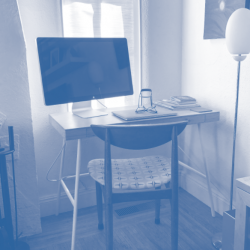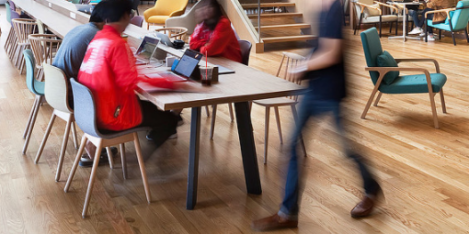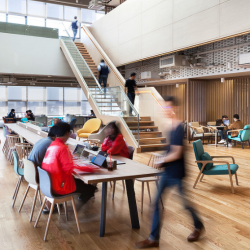To provide the best experiences, we use technologies like cookies to store and/or access device information. Consenting to these technologies will allow us to process data such as browsing behaviour or unique IDs on this site. Not consenting or withdrawing consent, may adversely affect certain features and functions.
The technical storage or access is strictly necessary for the legitimate purpose of enabling the use of a specific service explicitly requested by the subscriber or user, or for the sole purpose of carrying out the transmission of a communication over an electronic communications network.
The technical storage or access is necessary for the legitimate purpose of storing preferences that are not requested by the subscriber or user.
The technical storage or access that is used exclusively for statistical purposes.
The technical storage or access that is used exclusively for anonymous statistical purposes. Without a subpoena, voluntary compliance on the part of your Internet Service Provider, or additional records from a third party, information stored or retrieved for this purpose alone cannot usually be used to identify you.
The technical storage or access is required to create user profiles to send advertising, or to track the user on a website or across several websites for similar marketing purposes.
 The location of a potential employer’s workplace is becoming more important to workers – despite a surge in people working remotely, according to outplacement firm Randstad RiseSmart UK. Almost half (49 percent) of workers now say location is an important factor in choosing an employer, up from just over a third (35 percent) pre-pandemic. (more…)
The location of a potential employer’s workplace is becoming more important to workers – despite a surge in people working remotely, according to outplacement firm Randstad RiseSmart UK. Almost half (49 percent) of workers now say location is an important factor in choosing an employer, up from just over a third (35 percent) pre-pandemic. (more…)








 In a recent
In a recent 
 A new study on work-life balance claims that the COVID-19 crisis is a crucial factor – but not the only one – behind low levels of wellbeing among employees working from home. A research team including Professor Ilke Inceoglu, Professor of Organisational Behaviour and HR Management at the
A new study on work-life balance claims that the COVID-19 crisis is a crucial factor – but not the only one – behind low levels of wellbeing among employees working from home. A research team including Professor Ilke Inceoglu, Professor of Organisational Behaviour and HR Management at the 
 The UK’s digital skills gap could pose a risk to economic recovery, new research from
The UK’s digital skills gap could pose a risk to economic recovery, new research from 
 A new white paper claims that while supplier codes of conduct are important, they are ineffective if their requirements are not met with actions to bring about transparency. To be effective, codes of conduct should support an authentic determination to embed company values and to foster strong business relationships that encourage honest communication and transparency that include monitoring the effectiveness.
A new white paper claims that while supplier codes of conduct are important, they are ineffective if their requirements are not met with actions to bring about transparency. To be effective, codes of conduct should support an authentic determination to embed company values and to foster strong business relationships that encourage honest communication and transparency that include monitoring the effectiveness. 
 Despite the last-minute extension of the furlough scheme, new research conducted among UK business leaders claims that great concern remains around making redundancies and in particular the legal risk. The survey of over 440 UK business leaders, conducted by employment law and HR support firm
Despite the last-minute extension of the furlough scheme, new research conducted among UK business leaders claims that great concern remains around making redundancies and in particular the legal risk. The survey of over 440 UK business leaders, conducted by employment law and HR support firm 
 A new paper from the
A new paper from the 
 The construction of new offices in central London has declined by half (50 percent) in six months as developers and occupiers shift their focus to refurbishment, according to Deloitte Real Estate’s latest
The construction of new offices in central London has declined by half (50 percent) in six months as developers and occupiers shift their focus to refurbishment, according to Deloitte Real Estate’s latest 
 New research published by
New research published by 
 Staff need on average three days a week (2.91) in the office to achieve maximum productivity, according to a new study by
Staff need on average three days a week (2.91) in the office to achieve maximum productivity, according to a new study by 
 Companies are facing complex performance challenges as the COVID-19 resurgence heightens the need to reinvigorate employee engagement.
Companies are facing complex performance challenges as the COVID-19 resurgence heightens the need to reinvigorate employee engagement. 
 A survey issued by architecture, design, and planning firm
A survey issued by architecture, design, and planning firm 







